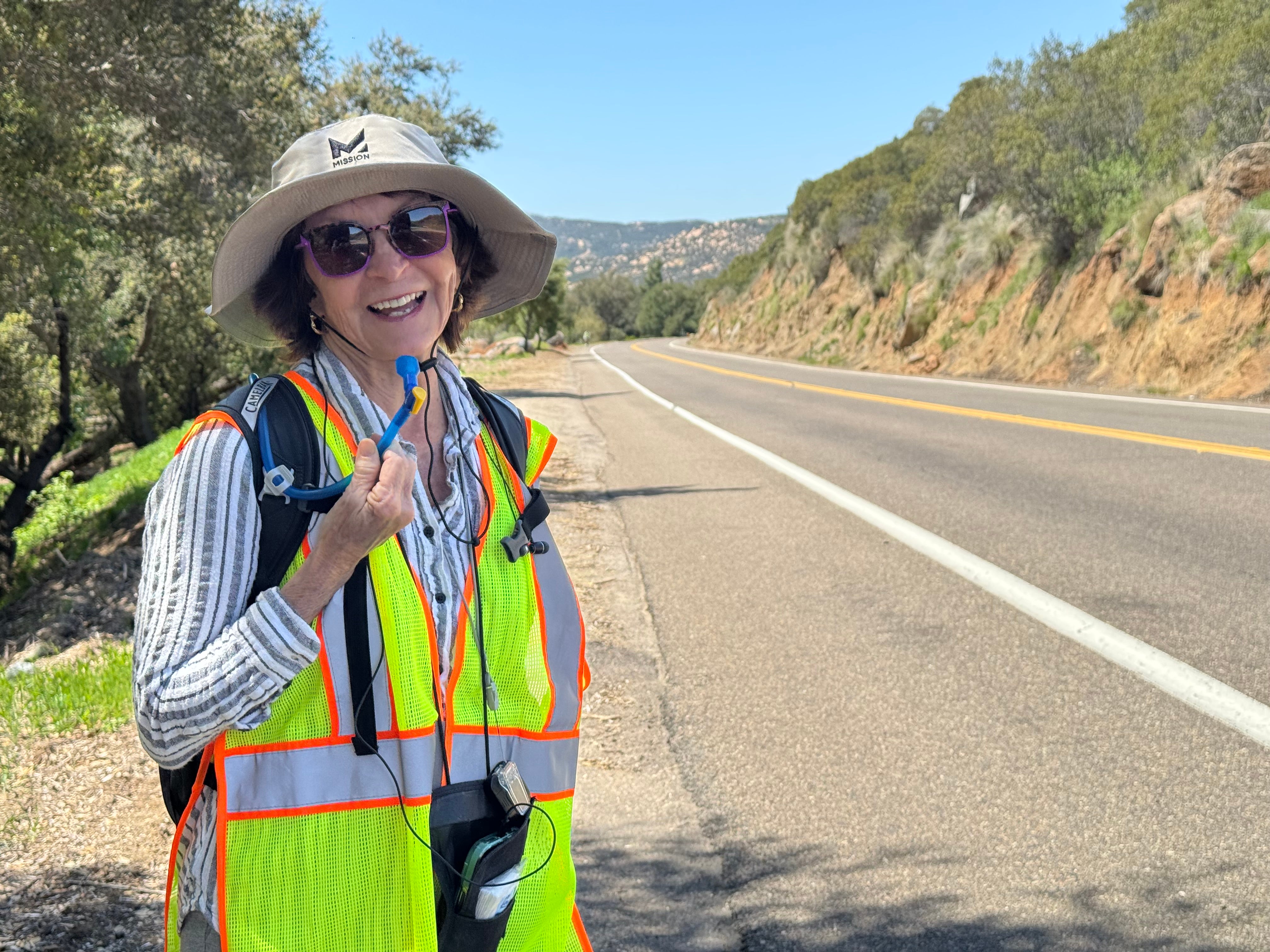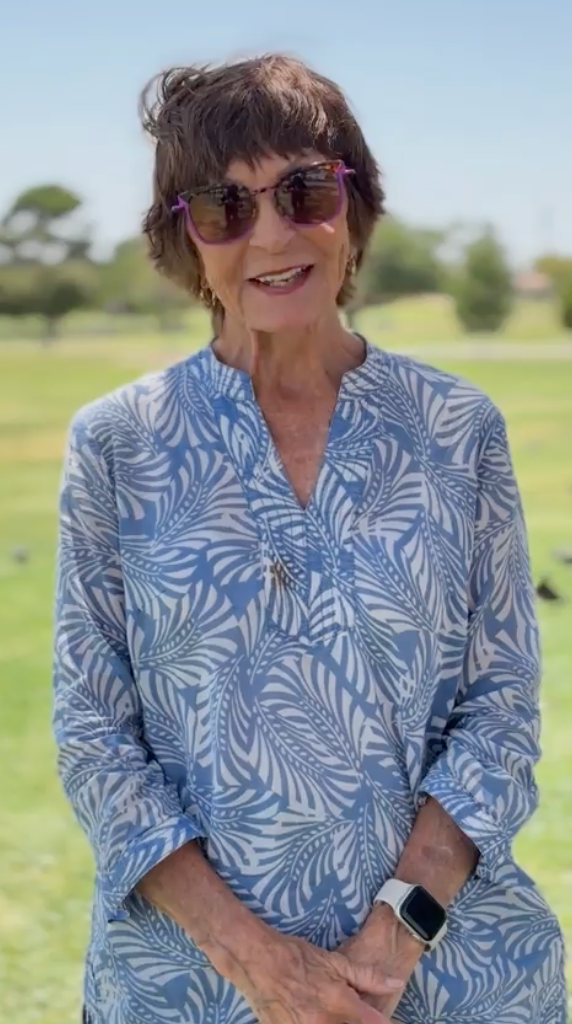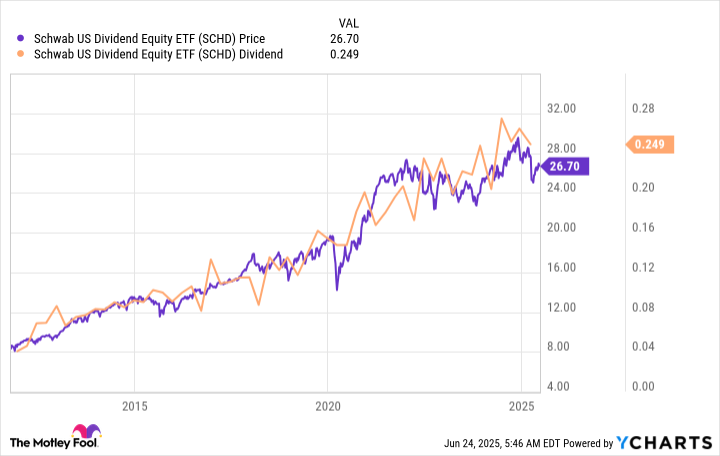Judy Benjamin was only 67 when she was diagnosed with Alzheimer’s, the devastating disease her mother and several uncles all suffered from.
The symptoms started slowly; a forgotten phone number, trouble reading the newspaper. But Benjamin soon found reason to panic after a brain scan showed damage and amyloid plaque build-up — hallmarks of Alzheimer’s, the progressive neurodegenerative disorder that typically affects memory, thinking, and behavior.
Now 81, Benjamin is in the midst of an epic cross-country walk to prove to herself, and others, that reversal of Alzheimer’s symptoms is possible thanks to a specific, science-backed protocol — and she’s living proof.
Having started her journey April 5 in San Diego, her hopes to make it to Saint Augustine, Florida, by October 5. She’s being accompanied by a support team, and a film crew shooting footage for a documentary. This week she celebrated hitting 1,000 miles.
“I’ve been really thrilled with the people I’ve met along the way,” Benjamin told The Independent . “Everyone knows someone with Alzheimer’s and they’re very interested in my story because I reversed my cognitive decline by radically changing my life.”

Getting to this point took a series of small steps and big ones as Benjamin navigated her diagnosis. Her symptoms started shortly after her own mother died of the disease 20 years after her initial diagnosis.
“I was working overseas and started to get really worried because I couldn’t remember things — even my own phone number or locker combination,” she recalled to Fox News Digital. “I got lost driving, when I’m always really good about direction.”

Scans of Benjamin’s brain showed lots of amyloid plaque — proteins that, when built up on the brain, can result in nerve cell death — and damage to the right and left parietal areas of her brain. Located behind the brain’s frontal lobe, the parietal lobe helps with location awareness and processes your sense of touch, according to the Cleveland Clinic.
“I knew that it was going downhill really quickly, and I was extremely depressed and distressed about that,” she said.
In an attempt to chart a new path forward, Benjamin met with Dr. Dale Bredesen at a friend’s urging.
Bredesen, an internationally recognized expert in the mechanisms of neurodegenerative diseases and the Chief Science Officer of Apollo Health, had been developing a protocol to reverse the signs and symptoms of Alzheimer’s but had yet to test it on a patient. He’s long been a believer that Alzheimer’s isn’t just preventable — it’s reversible, too.
So, Benjamin seeking treatment at the time Bredesen was looking for a “patient zero” was kismet.
Brededsen recalled Benjamin taking “copious notes” during her first appointment due to her poor memory. He had Benjamin follow his ReCODE (for “reversal of cognitive decline”) protocol, which included changes to Benjamin’s diet and exercise routine, as well as making adjustments to her sleep habits and starting meditation.
As Bredesen explained to The Independent about ReCODE: “The bottom line is that it is a personalized, precision medicine protocol that addresses the drivers specific to each person (so it is based on each person’s lab results), and these drivers are in three major groups —energetics (blood flow, oxygenation, etc.), inflammation (from any of many different causes), and toxicity (inorganics, organics, and biotoxins) — and three lesser groups — trophic support (hormones, nutrients, and growth factors), neurotransmitters (such as acetylcholine, which is needed for memory), and stress.”
Bredesen noted, too, that despite published documentation of the ways in which cognitive decline can be reversed, the vast majority of people remain unaware that it is often possible. Treatment is also more likely to be effective if started early on. He’s documented his research in several books, including The End of Alzheimer’s and The Ageless Brain.
Together, the pair have worked to maintain her progress. She’s become a brain health coach and a yoga instructor, and, as Bredesen described her, “a survivor of cognitive decline, and a remarkable role model for anyone interested in healthy aging.”
“Very very few people are capable of walking 3000 miles, from coast to coast. But to have someone doing it who is 81 years old, and has reversed her cognitive decline after a diagnosis of early Alzheimer’s in 2012, is truly historic,” Bredesen told The Independent.
“She is doing something that I could not do, nor could most of the people I know. She is truly an inspiration.”
Still, Benjamin’s message is simple — offering the hope that cognitive decline can be prevented and reversed.
“That is really the purpose of my journey,” she told The Independent. “And also to show that you can be 81 years old and walk all this way one step at a time.”





